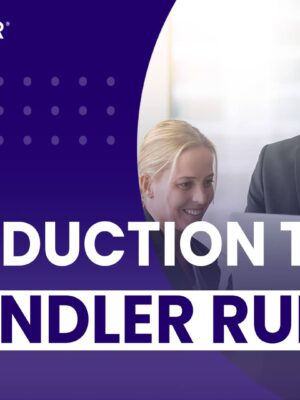The Don Quixote Approach to Opportunity Assessment
the other way round; quotas are being missed by a country mile; the playing field has never been flatter … all compelling reasons to conclude that all business is good business, right? No, very, very wrong!
Seasoned professionals fully understand both the value and importance of thorough objective qualification – not just at the front end, but right the way through the sales cycle. Qualification is a process, not a single event, and even internal and reactive salespeople should be fully skilled in asking a small number of basic questions regarding precise requirements, time
scales, budget, competition, etc. before they are prepared to reveal their price and delivery.
As the value of the product, service or solution increases, the depth of the qualification should increase proportionally.
External salespeople have the opportunity to meet with prospective customers and it is far easier to extract information face to face than it is via the telephone. However, it is vital that some initial answers are elicited prior to that first exploratory meeting in order to ensure that the meeting will be worthwhile to both parties. With sales costs spiraling upwards and sales time becoming limited, considerable prudence is required on the part of the salesperson.
What we do now have at our fingertips, are a **host of excellent software solutions, that allow us access to so much valuable information, but in “big-ticket selling” nothing replaces a face to face first meeting.
During that first meeting, a considerable amount of detail can and should be confirmed – e.g. background and history of the company, the key individuals, the composition of the DMU (Decision Making Unit) if there is one, timescales, budget, competition, current suppliers, and
most important of all, buying criteria, etc.
Only by rigorous questioning will the salesperson be able to answer the following questions when they get back to the office:
- Is there a requirement/need that my company can satisfy?
- Is it winnable?
- Do I want it?
The very best sales professionals will not pursue the opportunity, after proper objective analysis, if the answer to any of those questions is ‘No’. They will rather invest their precious selling time seeking out and closing opportunities that will provide a profitable return on that investment.
At the very highest selling levels – i.e. strategic “big-ticket” selling and marketing, clearly the sales cycle is much more protracted, complex and typically moves through four stages:
- Rigorous opportunity assessment
- Develop a strategy
- Present the solution and re-assess the opportunity
- Gain formal commitment, sign the order and develop
In Summary
Having a tilt at every windmill that presents itself is neither practical, nor profitable.
Qualification is a core competency that every professional salesperson should take on board as quickly as possible. Working to the maxim that “All business is good business” is unrealistic and totally erroneous. It takes just as long to work an unprofitable opportunity through the pipeline, only to lose it at the death, as it does a profitable one. The ability to determine which is which can have a huge impact on your ultimate success in a front-line sales role.
Copyright © 2019 by Jonathan Farrington All rights reserved. No part of this publication may be reproduced, distributed, or transmitted in any form or by any means without permission of the publisher.








